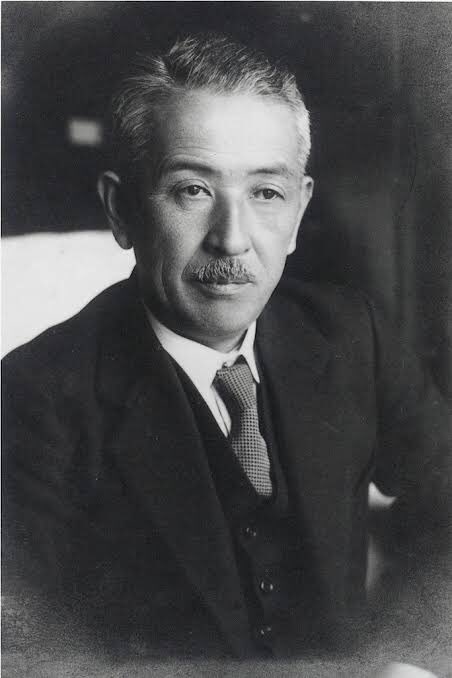
Rick Hornbeck
@Rick__Hornbeck
Followers
3K
Following
1K
Media
52
Statuses
984
Economist, Economic Historian. Soccer Dad, Climber Dad.
Joined June 2020
Grad students with #econhistory ideas: I’ll send you feedback if you email me 1 page about the question, data (available or acquirable), research design, main concerns, and how you aim to address those. Multiple 1-pagers better. All encouraged, please spread word. #EconTwitter.
11
249
755
My advice to 1st year Econ PhDs: think about research ideas all the time (during class work, reading papers/books/news, RA work, everyday life moments). You’ll learn things in a more useful active way, and you may get good ideas (and learn to discard ideas). #EconTwitter.
5
31
257
Hi Twitter. I needed to join because I'm not otherwise hearing things I need to hear (like #blackintheivory).
20
5
232
For anyone interested, here's my new uncomfortably self-centered #econhistory PhD course syllabus/readings: it has intentional clusters of papers, rather than trying to be comprehensive, and apologies for so many omissions (we'll talk about more).
5
28
163
Grad students seem to get more hesitant about this over time, so just a reminder that you can still send me economic history ideas for feedback.
Grad students with #econhistory ideas: I’ll send you feedback if you email me 1 page about the question, data (available or acquirable), research design, main concerns, and how you aim to address those. Multiple 1-pagers better. All encouraged, please spread word. #EconTwitter.
1
45
142
My Mom’s obituary, published in the Washington Post and Chicago Tribune. One of the first women at UVA Law (in larger groups). My parents noted from E.B. White: “It is not often that someone comes along who is a true friend and a good writer.” Like Charlotte, my Mom was both.
Mourning my Mom, who passed away last night from cancer. She was a labor lawyer with the government (NLRB) and union (NTEU), and she taught me to write. If you've ever thought something I did was well written, it's because of her.
4
2
144
New paper below, with a paradigm shift in thinking about slavery and emancipation — that centrally considers the costs incurred by enslaved people — with implications for the country’s foundation and the possibilities for substantial economic gains when there is misallocation.
Emancipation generated aggregate economic gains worth the equivalent of a 4% to 35% increase in US aggregate productivity — 7 to 60 years of technological innovation, from @Rick__Hornbeck and @TrevonDLogan
1
31
132
Slavery was not only theft, it was inefficient theft and would have generated substantial losses even if enslaved people had received more in-kind than they produced. Slavery was a clear moral failure, but it was also a market failure.
New research that centers the cost of slavery on enslaved people reveals that emancipation led to the single greatest annual increase in aggregate economic surplus, by far, in American history. From @ChicagoBooth's @Rick__Hornbeck & @TrevonDLogan:.
8
18
117
To grad students in particular: try to enjoy thinking about ideas and pursuing them. Also: you do research, you are not your research. This chart may help put in context things people deal with, though I feel like it makes me anxious looking at it. #EconTwitter.
2
22
98
Economic historians: “I know a spot, but I need 4 years to get the data on it.” #econhistory.
3
3
88
Child code breaking: 4-yr-old asked to listen to the ants. she meant the Beatles. #childcode.
0
1
71
One of my favorite economic history job market papers, ever, check it out (and interview him)! What happens to workers and their children following de-skilling technological change? How do people adapt, or not? History has answers.
WILLIAM COCKRIEL works at the intersection of economic history & labor economics, and his JMP studies how workers & their families adapt to technological change in the labor market, focusing on shoemakers affected by the introduction of the McKay Stitcher
1
12
70
Grad student tip: it also seems like a useful exercise to take a paper you've read, maybe in a subject and style you would like to emulate, and create this 1-page document for that paper. Note, though, that papers ideally seem simple at the end but generally are not at first.
Grad students with #econhistory ideas: I’ll send you feedback if you email me 1 page about the question, data (available or acquirable), research design, main concerns, and how you aim to address those. Multiple 1-pagers better. All encouraged, please spread word. #EconTwitter.
0
11
57
Work-in-progress with Martin Rotemberg on railroads, market integration, and aggregate productivity growth in the United States.
@Rick__Hornbeck does a revisit of the Fogel work and Donaldson work - he finds a massive effects of railways #econhist #EconTwitter #EHA2020
2
7
43
The negativity on #EconTwitter is out of control.
1
1
37
Hi all, this is getting distributed around again (thanks!) and I wanted to emphasize this offer still stands and people can reach out to me with early-stage research ideas (see below). I've gotten back to everyone within a week or two.
Grad students with #econhistory ideas: I’ll send you feedback if you email me 1 page about the question, data (available or acquirable), research design, main concerns, and how you aim to address those. Multiple 1-pagers better. All encouraged, please spread word. #EconTwitter.
1
4
34
Just a reminder that this is still going on! I think I’ve gotten back to everyone (within a week or two) and don’t be shy! #econhistory #econtwitter.
Grad students with #econhistory ideas: I’ll send you feedback if you email me 1 page about the question, data (available or acquirable), research design, main concerns, and how you aim to address those. Multiple 1-pagers better. All encouraged, please spread word. #EconTwitter.
0
13
34
So tragic. Many missed opportunities to appreciate those in our lives, personal and academic (and both), and my hope is they know.
Yesterday, I lost a mentor and a beloved friend. I woke up to news that I've lost a limb without knowing it. Emmanuel Farhi was the closest to super-human I've known. If you have someone special in your life, let them know before you lose the chance. 🕯️🕯️
0
1
33
If white people think understanding how skin tones appear in children's books is an "antebellum ethic," it's because they draw on an antebellum perspective in thinking about skin tones.
University researchers used AI to catalog characters’ skin color, bringing an antebellum ethic of race consciousness to American children’s literature, writes @MeghanGurdon via @WSJOpinion.
0
6
28
Very interesting to think about the value of investments in weather forecasting, and how it depends on what decisions can adjust in response to better information.
Economic history of weather forecasting! US-centered by fantastically interesting post to about development of storm tracking and warning systems from 1860s.
2
1
29
Attention crosswalk twitter!.
New working paper alert (with @patesta and @LiyangZhou6)! Introducing new area- AND population-based crosswalks for harmonizing boundaries of U.S. counties (i) to congressional districts and (ii) across U.S. Census years. Paper: (1/7).
2
1
24
@amitabhchandra2 Yes, thank you, the magnitudes are completely off for this not to be an overwhelming win for biotech innovation. It also seems crazy that the US govt did not buy 350m doses of each viable vaccine candidate for delivery ASAP.
3
3
23
This could be used for the basis of a very cool paper if the relevant data are acquirable.
In 1914, a 29 yo engineer with the Ministry of Agriculture put an end to centuries of village feuding over water rights in rural Japan by inventing the Circular Water Diverter, "Entobunsui". A no-tech unmanned automatic cistern that fairly divided set amounts of irrigation water.
1
2
26
Some of our calculations find that emancipation generated aggregate economic gains more than double the substantial cost of the US Civil War (drawing on Civil War cost calculations by Claudia Goldin and Frank Lewis, 1975).
New research challenges the enduring view that slavery was "economically productive." @ChicagoBooth's @Rick__Hornbeck & @TrevonDLogan show that the value extracted by enslavers was substantially less than the costs imposed upon the people they enslaved.
0
4
26
Fogel in 1993 (Nobel): “The marketplace could not have ended slavery, because slavery was an efficient and profitable system.” But: enslavers did not have to internalize costs on enslaved people (e.g., with a Pigouvian tax). Unlikely parallel between slavery and carbon emissions.
In their new working paper, "One Giant Leap: Emancipation and Aggregate Economic Gains," @ChicagoBooth's @Rick__Hornbeck & @TrevonDLogan challenge the longheld notion that slavery was economically productive by incorporating the immense costs imposed upon enslaved people.
1
5
22
I don’t know where all the p-value 0.049 discussion is coming from on #EconTwitter. I don’t think exact p-values and stars are that much of a thing now.
0
2
22
@MilenaAlmagro One of my best decisions was paying a PhD student to replicate my JMP and improve the code/comments — go for it!.
1
1
20
History is amazing (and knowing it will make you safer this winter).
Fun pandemic history fact for NY apartment dwellers frustrated by aggressive radiator heat in the winter. The era when steam heat in buildings was new/popular overlapped w/Spanish Flu pandemic, when authorities told everyone to leave their windows open for ventilation. So. 1/4.
0
1
20
This is going to become unfortunately increasingly important in the next century. We know more about who moves in response to temporary environmental events, but there are different responses to permanent environmental collapse.
Who will be the next #climate migrants? Chicago Booth’s Richard Hornbeck looks to Dust Bowl-era data in the US to help us understand an expected massive movement of people.
0
5
17






































